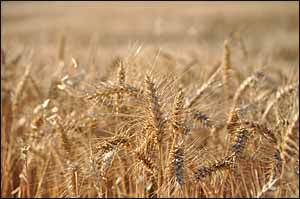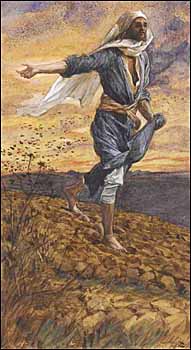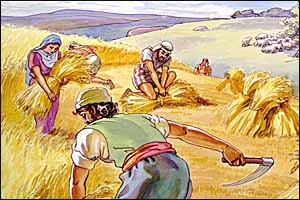Free E-Mail
Bible Studies
Beginning the Journey (for new Christians). en Español
Old Testament
Abraham
Jacob
Moses
Joshua
Gideon
David, Life of
Elijah
Psalms
Solomon
Songs of Ascent (Ps 120-135)
Isaiah
Advent/Messianic Scriptures
Daniel
Rebuild & Renew: Post-Exilic Books
Gospels
Christmas Incarnation
(Mt, Lk)
Sermon on the Mount
(Mt 5-7)
Mark
Luke's
Gospel
John's Gospel
7 Last Words of Christ
Parables
Jesus and the Kingdom
Resurrection
Apostle Peter
Acts
The Early Church
(Acts 1-12)
Apostle Paul
(Acts 12-28)
Paul's Epistles
Christ Powered Life (Rom 5-8)
1 Corinthians
2 Corinthians
Galatians
Ephesians
Vision for Church
(Eph)
Philippians
Colossians,
Philemon
1
& 2 Thessalonians
1 & 2 Timothy,
Titus
General Epistles
Hebrews
James
1 Peter
2 Peter, Jude
1, 2, and 3 John
Revelation
Revelation
Conquering Lamb of Revelation
Topical
Glorious Kingdom, The
Grace
Great Prayers
Holy Spirit, Disciple's Guide
Humility
Lamb of God
Listening for God's Voice
Lord's Supper
Names of God
Names of Jesus
Christian Art
About Us
Podcasts
Contact Us
Dr. Wilson's Books
Donations
Watercolors
Sitemap
 The fields are ripe for harvest. |
We met the woman at the well in Lesson 8. But her story continues as it opens up a whole Samaritan village to faith and leads Jesus' band of disciples to develop new eyes to see the harvest.
The Disciples' Return and the Woman Testifies (4:27-30)
Verses 27-30 are transitional. Jesus' disciples return and the woman returns to town.
"27 Just then his disciples returned
and were surprised to find him talking with a woman. But no one asked, 'What do
you want?' or 'Why are you talking with her?'
28 Then, leaving her water jar, the woman went back to the town and
said to the people, 29 'Come, see a man who told me everything
I ever did. Could this be the Christ?'
30 They came out of the town and made their way toward him."
(4:27-30)
Notice that woman left her water jar at the well. Why? She is in such a hurry to tell her neighbors about the One she has discovered, that she leaves everything behind to rush back to the town.
She doesn't even like her neighbors probably -- they are so mean to her! But she can't help herself. She rushes back to tell them anyway!
"Come, see a man who told me everything I ever did. Could this be the Christ?" (4:29)
She's exaggerating, of course, like we do when we're excited. Jesus, through the Holy Spirit, had put his finger on the sore, festering, defining sin of her life. He saw into her life and loved her anyway. He offered her living water, eternal life. She had to tell!
She reminds me of John the Baptist who has to tell his disciples, "Look, the Lamb of God!" (1:36), and Andrew, who "first thing" has to tell his brother Simon Peter (1:41), and Philip who had to tell his friend Nathanael (1:45).
"He can't be the Messiah, can he?" the Samaritan woman says to her neighbors.[177]
Her neighbors -- especially the wives -- don't like this particular Samaritan woman, but they can't help but see that something is different about her. Her encounter with the man whom she is telling them about has changed her. That is clear.
So they begin to leave what they're doing in town and make their way to the well outside of town. The verbs in verse 30 are both present tense, suggesting continuing action. While Jesus is talking with his disciples and talking about food and the white harvest, there is a steady stream of people leaving the city and beginning to approach Jesus.
Food You Don't Understand (4:31-34)
"Meanwhile" -- while these people are coming -- Jesus' disciples are trying to get him to eat the food they've bought in town.
"31 Meanwhile his disciples urged him, 'Rabbi, eat[178]something.' 32 But he said to them, 'I have food to eat that you know nothing about.' 33 Then his disciples said to each other, 'Could someone have brought him food?' 34 'My food,' said Jesus, 'is to do the will of him who sent me and to finish his work.'" (4:31-34)
I can imagine Jesus' disciples pressing him to eat. "Jesus, you're tired! You're hungry! Eat something! But Jesus replies cryptically:
"I have food[179]to eat that you know nothing about." (4:32)
It's clear now that he is using the concept of "food" in a figurative way as he does elsewhere in this Gospel -- just as he used "water" figuratively and confused the woman at the well (4:10-14).
"Do not work for food that spoils, but for food that endures to eternal life, which the Son of Man will give you. " (6:27a)
"For my flesh is real food and my blood is real drink." (6:55)
 James J. Tissot, 'The Sower' (1886-94), watercolor, Brooklyn Museum, New York. |
What does he mean in our passage? He is saying: "What gives me energy, what motivates me, what 'gets my juices flowing' is to do my Father's work!" It's like he said in another context, quoting from Deuteronomy 8:3 --
"Man does not live on bread alone, but on every word that comes from the mouth of God." (Matthew 4:4)
Yes, we need physical food. But there are things more important than food! If we spend all our energies on our own maintenance, we don't have time for the Father's work.
Dear friend, how much of your energy do you spend on doing the work the Father has assigned to you? Oh, I don't have any assignment, you might say. Yes you do!
What are you personally doing about the desperate spiritual need of your neighbors and in your neighborhood? What are you doing about the desperate spiritual need you see in your family members or grandchildren, nieces and nephews. They are your assignment! God has put you there. You must find out from the Lord how to minister to them, since they are your responsibility, your "field" to work. Jesus is seeking to teach his disciples about the urgency of doing the Father's work.
Q1. (John 4:31-34) What does Jesus mean by "food" in
these verses? What was his passion? What is your passion? What will it take so
that your passion, your goal in life, is to do the Father's work? In your life,
what do you think that might look like?
https://www.joyfulheart.com/forums/topic/1424-q1-jesus-passion/
Fields Are Ripe for Harvest (4:35)
As he is speaking, I believe that Jesus turns and extends his hand towards the crowd of Samaritan townspeople who are approaching him, and says,
"Do you not say, 'Four months more and then the harvest'? I tell you, open your eyes and look at the fields! They are ripe[180]for harvest." (4:35)
The phrase "Four months more and then the harvest," may have been rural proverb about the time between the last of sowing in the fall and harvest in the spring -- about four months. It shouldn't be used to date this incident which seems to have taken place shortly after Passover in March or April. Jesus seems to be saying: Normally there's a time span between sowing and harvest. But he has barely begun to sow (to the Samaritan woman) and immediately comes the harvest of people coming to faith in Christ.
Jesus is comparing an agricultural harvest to a spiritual harvest. When he says, "look at the fields" (4:35b), he has in mind -- and perhaps is pointing to the crowd of Samaritans coming up the path as he is speaking. And when he says "harvest" he is talking about bringing people from unbelief to faith and from sin and destruction to eternal life.[181]This accords with John's purpose in writing this Gospel:
"... that you may believe that Jesus is the Christ, the Son of God, and that by believing you may have life in his name." (20:31)
Jesus tells his disciples, "open your eyes" (NIV), "look around you" (NRSV), "lift up your eyes" (ESV, KJV). So often we are blind to the spiritual state of others, such as their state of readiness to receive Christ. Jesus tells his disciples to become alert to the readiness of the harvest.
On another occasion, Jesus looks out at the crowds and talks about the enormity of the task of the harvest:
"When he saw the crowds, he had compassion on them, because they were harassed and helpless, like sheep without a shepherd. Then he said to his disciples, 'The harvest is plentiful but the workers are few. Ask the Lord of the harvest, therefore, to send out workers into his harvest field.'" (Matthew 9:36-38)
Q2. (John 4:35) What caused the harvest to ripen so
rapidly in Sychar? How likely is it that the testimony of one, discredited woman
could make such a huge impact? What might God do with your testimony if you were
to share it? Why is it necessary to "open our eyes" to see the potential
spiritual harvest?
https://www.joyfulheart.com/forums/topic/1425-q2-eyes-for-the-harvest/
Sowers and Reapers (4:36-38)
 Sickles were used to harvest gain as far back as the Neolithic era. Illustrator unknown. |
We see this kind of agricultural analogy of sowing and reaping in several of Jesus' other parables, such as:
- The Parable of the Sower (Matthew 13:3-9, 18-23)
- The Parable of the Weeds or Tares (Matthew 13:24-30, 36-43)
- The Seed Growing Secretly (Mark 4:26-29)
In our passage, Jesus continues:
"36 Even now the reaper draws his wages, even now he harvests the crop for eternal life, so that the sower and the reaper may be glad together. 37 Thus the saying 'One sows and another reaps' is true. 38 I sent you to reap what you have not worked for. Others have done the hard work, and you have reaped the benefits of their labor." (4:36-38)
Jesus seems to base his spiritual metaphor concerning sowers and reapers on a popular proverb of the day: "One sows and another reaps." He is almost ready to reap a harvest, that is, bring to salvation, a whole Samaritan town. In the analogy, both sower and reaper are glad, because when the harvest comes in, the sower (usually the farmer himself) and the reapers (often temporary workers hired to get in the harvest quickly) get paid.
Who sowed the seed that resulted in the spiritual harvest of this Samaritan town? Perhaps the Old Testament prophets or the Father, who prepared them for this hour.
Jesus alludes to his disciples' successful ministry as well:
"I sent you to reap what you have not worked for. Others have done the hard work, and you have reaped the benefits of their labor." (4:38)
In the West, we have a similar metaphor of dwarfs standing on the shoulders of giants, meaning that we discover new truths by building on previous discoveries.[182]We should take appropriate pride in doing our own work well, but we must never forget that it isn't all about us. Jesus' own ministry built on that of John the Baptist, who stood in a long line of prophets who had preached repentance and faith even before him.
To the Corinthian church that was denigrating one preacher and exalting another, the Apostle Paul used a similar analogy:
"What, after all, is Apollos? And what is Paul? Only servants, through whom you came to believe -- as the Lord has assigned to each his task. I planted the seed, Apollos watered it, but God made it grow. So neither he who plants nor he who waters is anything, but only God, who makes things grow. The man who plants and the man who waters have one purpose, and each will be rewarded according to his own labor." (1 Corinthians 3:5-8)
Whether your ministry is primarily to sow (share your faith, testify, preach), to water (discipleship), or to reap (lead people to Christ), all are important -- and when the harvest comes in, everyone will "get paid."
But, Paul, reminds us, as he shifts his analogy from sowing and reaping to building:
"Each one should be careful how he builds." (1 Corinthians 3:10)
Each of us is responsible for the quality of our work. We can't be lazy or sloppy! That dishonors the "Lord of the harvest" who calls us (Matthew 9:38).
Q3. (John 4:36-38) Sowers and reapers usually got "paid"
when the crop was harvested. According to this analogy, what will Christian
workers receive at the end of the age when the final harvest takes place and
Christ comes?
https://www.joyfulheart.com/forums/topic/1426-q3-rewards-for-workers/
The Samaritans Believed (4:39-42)
Notice the remarkable result of one woman's testimony -- and a despised woman at that!
"39 Many of the Samaritans from that town believed in him because of the woman's testimony, 'He told me everything I ever did.' 40 So when the Samaritans came to him, they urged him to stay with them, and he stayed two days. 41 And because of his words many more became believers. 42 They said to the woman, 'We no longer believe just because of what you said; now we have heard for ourselves, and we know that this man really is the Savior of the world.'" (4:39-42)
The progression is clear. Many believed because of the woman's testimony -- that is, they believed enough to seek out Jesus themselves and came to a greater, more complete faith. Others who didn't come out initially became believers when Jesus and his disciples stayed in the village for two additional days!
It's our job to bring people to a place where they can listen to Jesus for themselves. Ultimately, it is Jesus' own words that they will believe or disbelieve.
Changing His Ministry Plan (4:40)
It is quite remarkable that Jesus stayed in this Samaritan town for two days. Many strict Jews would have considered him disgusting, unclean by his voluntary social contact with the Samaritans. I expect that it was difficult for the disciples themselves to adapt this way. It went against everything they had always believed and all their prejudices.
Indeed, on other occasions Jesus hesitated to preach outside of Israel (Mark 7:24-30) and instructed his disciples:
"Do not go among the Gentiles or enter any town of the Samaritans. Go rather to the lost sheep of Israel." (Matthew 10:5-6)
But this was a special case, an exception to the rule. We know that Jesus didn't let men's traditions keep him from his ministry -- even though it upset the Pharisees. Here, he didn't let his own "rules" prevent him from ministering to the Samaritans, even though that wasn't the main focus of his ministry.
Savior of the World (4:42b)
This extended section on Jesus' ministry in Samaria concludes with the Samaritans' words:
"We know that this man really is the Savior of the world.[183]" (4:42b)
Though this story isn't included by the other Gospel writers, John includes it to underscore Jesus' ministry outside of Israel, such as the Gentiles the Apostle John is ministering to in Ephesus and elsewhere. A number of verses in John's writings allude to Christ being Savior of the World:
"Look, the Lamb of God, who takes away the sin of the world!" (1:29)
"For God so loved the world that he gave his one and only Son, that whoever believes in him shall not perish but have eternal life. For God did not send his Son into the world to condemn the world, but to save the world through him." (3:16-17)
"I did not come to judge the world, but to save it." (12:47b)
"And we have seen and testify that the Father has sent his Son to be the Savior of the world." (1 John 4:14)
"He is the atoning sacrifice for our sins, and not only for ours but also for the sins of the whole world." (1 John 2:2)
We also see this emphasis elsewhere in the New Testament, for example:
"I bring you good news of great joy that will be for all the people." (Luke 2:10)
"'Anyone who trusts in him will never be put to shame.' For there is no difference between Jew and Gentile.... 'Everyone who calls on the name of the Lord will be saved.'" (Romans 10:11, 13)
Jesus is not a Jewish Messiah only -- or a Messiah to twenty-first century Americans. He is the Savior of the whole world. And because this is true, his commission to us is to take the gospel to the whole world.
"Therefore go and make disciples of all nations...." (Matthew 28:19a)
"You will receive power when the Holy Spirit comes on you; and you will be my witnesses in Jerusalem, and in all Judea and Samaria, and to the ends of the earth." (Acts 1:8)
What began in Israel, spread to Samaria. When Philip came to Samaria a decade or so later, many people responded to his ministry there -- Jesus had sown the seed. And the gospel spread to Asia Minor and to Europe. To India and Asia and the British Isles and to the Americas. Our prayer is that someday:
"The earth will be full of the knowledge of the
LORD
as the waters cover the sea." (Isaiah 11:9)
"that at the name of Jesus every knee should
bow,
in heaven and on earth and under the earth,
and every tongue confess that Jesus Christ is Lord,
to the glory of God the Father." (Philippians 2:10-11)
Come soon, oh Savior of the World!
Q4. (John 4:39-42). Why do you think Jesus stayed two
days in Samaria, when elsewhere he instructed his disciples not to preach in
Samaritan villages? What does it mean that Jesus is the Savior of the whole
world? What are its implications for our lives? For your church's mission?
https://www.joyfulheart.com/forums/topic/1427-q4-savior-of-the-world/
Lessons for Disciples
 Entire study is available in paperback, Kindle, and PDF formats. |
What are the lessons we can learn from this passage as disciples?
- The testimony of a transformed person is extremely powerful in drawing friends and acquaintances to Christ.
- Jesus' mission was the focus of his life and passion, and what energized him far more than food. Does our mission energize us?
- A spiritual harvest can happen any time when God prepares people -- even seemingly hardened people. We need to look at people as if God is working in them, not as impossible cases.
- We will be rewarded for our labors when Christ returns and "reaps the final harvest."
- Jesus is the Savior of the world.
- Jesus altered his normal ministry parameters temporarily when the Father opened new doors.
Prayer
O Lord, take away our prejudices of race and upbringing, of what part of town a person lives in or how much money others have. Forgive us for our parochialism and narrowness and selfishness. Give us a world vision of the world-wide harvest that you are seeking in our day. Give us eyes to see the magnitude of this harvest and to volunteer to be your hands extended. Give us zeal so that our passion is not for gourmet food and selfish luxuries, but that our food is to do your work. Help us to find our satisfaction in you! In Jesus' name, we pray. Amen.
Key Verses
"His disciples urged him, 'Rabbi, eat something.' But he said to them, 'I have food to eat that you know nothing about.' Then his disciples said to each other, 'Could someone have brought him food?' 'My food,' said Jesus, 'is to do the will of him who sent me and to finish his work.'" (John 4:31-34, NIV)
"Do you not say, 'Four months more and then the harvest'? I tell you, open your eyes and look at the fields! They are ripe for harvest." (John 4:35, NIV)
"They said to the woman, 'We no longer believe just because of what you said; now we have heard for ourselves, and we know that this man really is the Savior of the world.'" (John 4: 42, NIV)
Endnotes
[177]The sentence, "could this be the Christ?" begins with mēti, a marker that invites a negative response to the question that it introduces (BDAG 649). The NRSV gets the sense of the Greek: "He cannot be the Messiah, can he?"
[178]"Eat" is esthiō, "to take something in through the mouth, usually solids, but also liquids, eat" (BDAG 396, 1a).
[179]"Food" (NIV, NRSV), "meat" (KJV) in verse 32 is brōsis, "eating," then what is eaten, "food," here used figuratively (BDAG 185, 3b). "Food" (NIV, NRSV), "meat" (KJV) in verse 34 is brōma, "that which is eaten, food," here figuratively, "nourishment of a transcendent nature, means of sustenance, food" (BDAG 184, 2).
[180]"Ripe" (NIV, NRSV), "white" (ESV, KJV) is interesting. "White" clearly means "ripe" here, but few crops are "white" when they are ready to harvest. Perhaps it should be translated "bright, shining, gleaming" rather than green (leukos, BDAG 593, 1). Some have thought that "white" refers to the clothing of the Samaritans who are coming towards Jesus (Morris, John, p. 279, fn. 85).
[181]A number of Christian hymns use this kind of language, such as "Bringing in the Sheaves" and "Come Ye Thankful People Come."
[182]The quotation is attributed to a 1676 letter of Isaac Newton, though it goes back at least to Bernard of Chartres in the twelfth century.
[183]"World" is kosmos, "world," here of humanity in general (BDAG 562, 6b).
Copyright © 2025, Ralph F. Wilson. <pastor![]() joyfulheart.com> All rights reserved. A single copy of this article is free. Do not put this on a website. See legal, copyright, and reprint information.
joyfulheart.com> All rights reserved. A single copy of this article is free. Do not put this on a website. See legal, copyright, and reprint information.
 |

|
In-depth Bible study books
You can purchase one of Dr. Wilson's complete Bible studies in PDF, Kindle, or paperback format -- currently 48 books in the JesusWalk Bible Study Series.
Old Testament
- Abraham, Faith of
- Jacob, Life of
- Moses the Reluctant Leader
- Joshua
- Gideon
- David, Life of
- Elijah
- Psalms
- Solomon
- Songs of Ascent (Psalms 120-134)
- Isaiah
- 28 Advent Scriptures (Messianic)
- Daniel
- Rebuild & Renew: Post-Exilic Books
Gospels
- Christmas Incarnation (Mt, Lk)
- Sermon on the Mount (Mt 5-7)
- Luke's Gospel
- John's Gospel
- Seven Last Words of Christ
- Parables
- Jesus and the Kingdom of God
- Resurrection and Easter Faith
- Apostle Peter
Acts
Pauline Epistles
- Romans 5-8 (Christ-Powered Life)
- 1 Corinthians
- 2 Corinthians
- Galatians
- Ephesians
- Philippians
- Colossians, Philemon
- 1 & 2 Thessalonians
- 1 &2 Timothy, Titus
General Epistles
Revelation
Topical
